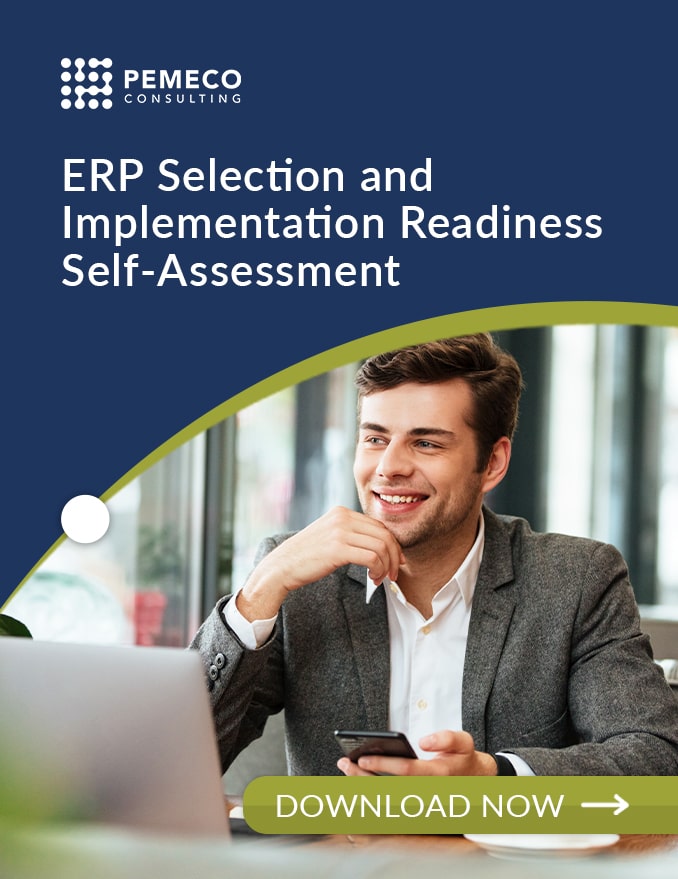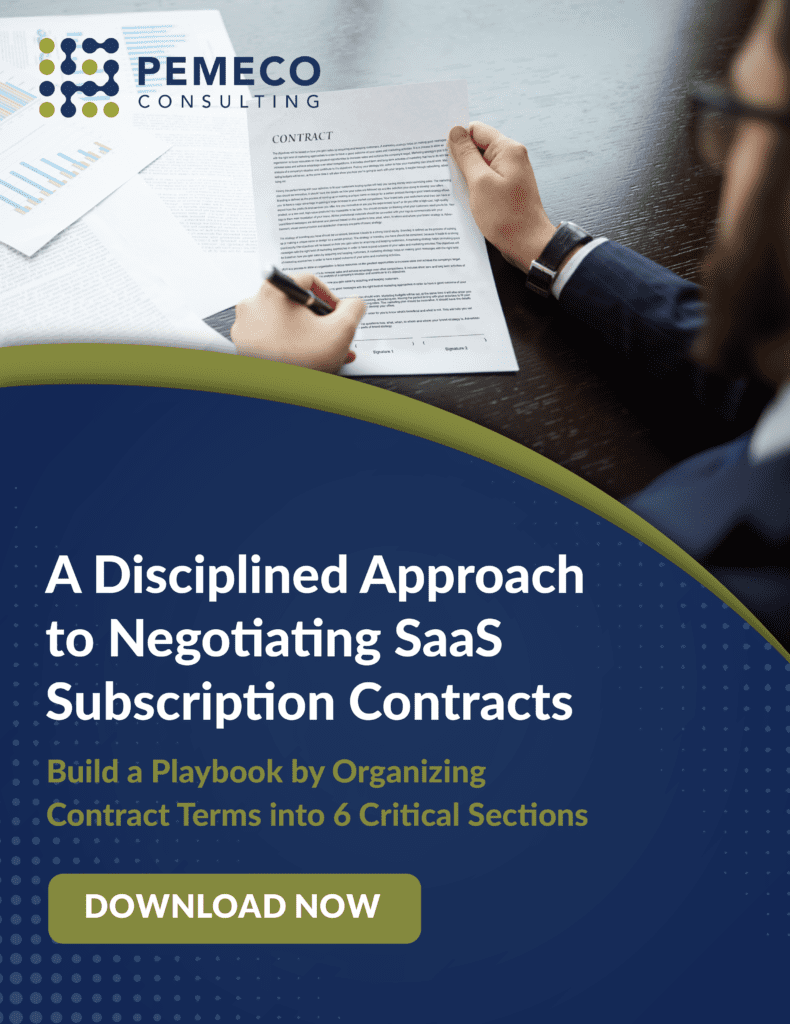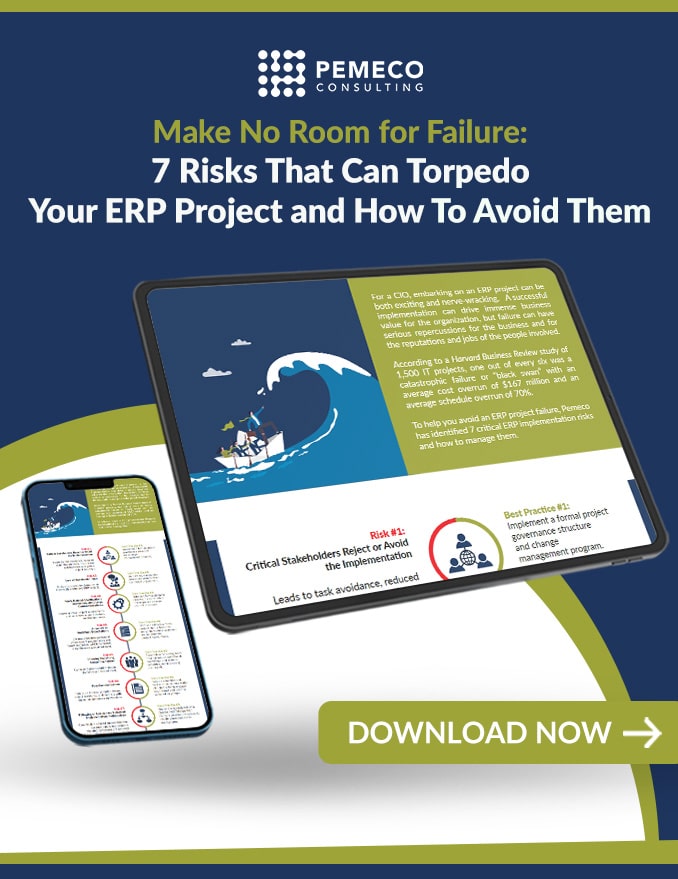According to studies, as many as 50% of ERP projects fail. Gartner estimates that number to be even higher, potentially exceeding 75%. A successful ERP implementation can increase efficiency and operational effectiveness. An unsuccessful ERP implementation, in contrast, can cost you dearly. Smart negotiation can mean the difference between the two.
Complex IT projects almost invariably require outside consultants. In the ERP space, this typically includes system integrators and resellers with specialized expertise in the software to be implemented, project management competencies, and a thorough understanding of business processes and practices in the industries they serve. It may also include third-party vendors, ancillary consultants with expertise in those products, and development teams charged with integrating ERP with other software.
Given the complexity of most ERP projects and the number of potential parties involved, it’s no wonder that a lot can go wrong. Ultimately, the end-customer must own the end result, and that starts during the contracting process. Contract negotiation must address key risks, establish clear roles and responsibilities, and assure that the expectations of all parties are aligned.
Preparing for ERP Contracting Success
Most implementation problems are rooted in mismatched expectations, poorly defined roles and responsibilities, inadequate communication, or some combination of these factors. The time to address critical risks is before the project launch, starting with the contract negotiation process.
Once your ERP selection process is complete but before you finalize contracts, you need to give some consideration to the impact the implementation process itself will have on your organization. You’ll need to assign roles & responsibilities internally, and have a plan for backfilling those positions that will be focused on the ERP implementation project. You’ll also need to have a governance structure in place to monitor progress and make key decisions as the process unfolds.
The pre-negotiation phase is also a good time to start thinking about your data. What is the desired end-state? Your ERP data will necessarily undergo some cleansing and transformation, so this is an excellent opportunity to consider the implications of migrating to a new ERP system with respect to the bigger picture of corporate data. Given the importance of data analytics and AI to most modern enterprises, this presents a moment of opportunity. Smart organizations will consider enriching, transforming, or consolidating their data into a central repository concurrently with their ERP implementation.
At Pemeco, we strongly recommend that clients scope the project before contract negotiations begin. That includes defining the project methodology, building a bottom-up plan and budget, identifying the responsibilities of each party, and evaluating the key consultants who will drive the project. This process will yield important documents such as a statement of work, a project plan, and other documents that can (and should) be incorporated into the final agreemenat by reference.
Roles & Responsibilities of the Systems Integrator
Unfortunately, many organizations choose to approach their ERP implementation as a turnkey exercise. They don’t want to assume ownership of the project, hoping instead that their systems integrator will take full responsibility for the success or failure of the implementation.
Standard form contracts, in direct contradiction to this expectation, tend to place the primary responsibility on the customer. In reality, every successful ERP implementation requires the participation of both the customer and the service provider. Clear definition of roles and responsibilities is essential. Effective contracts not only delineate those responsibilities; they also specify the remedial actions and consequences when one party does not meet its obligations.
Standard form contracts often fail to capture other project idiosyncrasies such as the project methodology, key requirements and risks, or resource constraints. When contractual obligations are not fully aligned with project realities, that creates risk to the overall schedule, budget, and quality of outcomes.
It is essential, therefore, to take an assertive and proactive approach to contract negotiations. It’s a bad idea, for example, to leave key responsibilities undefined, to gloss over the details, or to simply lob the contract over to corporate counsel for review. Instead, treat the contracting process as a foundation for the overall implementation process. Bring together cross-functional teams, align the contract with the nuances of the implementation project, and include experts with solid ERP implementation experience.
Incentivizing your ERP Services Provider
It’s critical that you build provisions into your services contract that hold your provider accountable to their obligations. First among these are standard warranty provisions that designate functional requirements that must be met, that software must perform according to industry standards, and/or that work be performed within a specified timeframe. Each warranty provision must also specify the remedies to address any deficiencies.
We strongly recommend that ERP customers require delivery acceptance testing as part of their contract. That means specifying the criteria for acceptance, the timeframe for remediation, and a limit on the number of iterations allowed before the service provider is considered to have failed.
ERP customers should also consider building incentives directly into the contract. Bonuses and holdbacks, for example, can make a meaningful difference in the timing, budget, and quality of deliverables. Relatively few companies build positive incentives into their contracts. Nevertheless, these kinds of provisions often lead to superior results, if crafted properly.
Key Commercial Terms for your ERP Implementation
Customers tend to be evenly divided with respect to fixed-price versus time-and-materials contracts. Both have their virtues, but where you have the option, it’s important to consider the pros and cons of each approach.
Time-and-materials contracts tend to work better when requirements are fluid, and where there is a significant overlap in responsibilities between the customer and the service provider. The downside, of course, is that scope creep and inefficiency may lead to cost overruns. Time-and-materials projects also involve higher administrative costs resulting from the need to track hours and expenses.
Fixed-fee implementations are more suitable in cases where the scope is very clearly defined. As such, this tends to work better for smaller, less-complex projects, – and where the service provider carries the bulk of responsibility and control. If the service provider performs inefficiently, the customer remains somewhat protected. That can backfire, however, if the service provider chooses to shift resources to more profitable projects.
Contracts should include detailed provisions for monitoring and managing professional services, such as billing, timesheets, payment terms, and allowable markups. It’s also important to build in some protections with respect to dispute processes. The service provider, for example, should not be empowered to stop services for non-payment of a disputed charge. Rate escalators, service change fees, transition fees, and termination fees are likewise important considerations.
Given the complexity of ERP implementations, there’s a lot that goes into an effective contracting process. Unfortunately, the majority of organizations choose to negotiate contracts themselves, use in-house counsel, or seek help from a corporate law firm. Without a detailed and nuanced understanding of ERP implementations, though, it’s virtually impossible to arrive at an agreement that proactively drives positive outcomes.
Pemeco brings extensive ERP experience to the table. We understand the potential pitfalls and success factors in an ERP implementation, and we understand how to negotiate contracts that provide a framework for success. If you’re planning an ERP project for your organization, contact us to learn how we can help.







